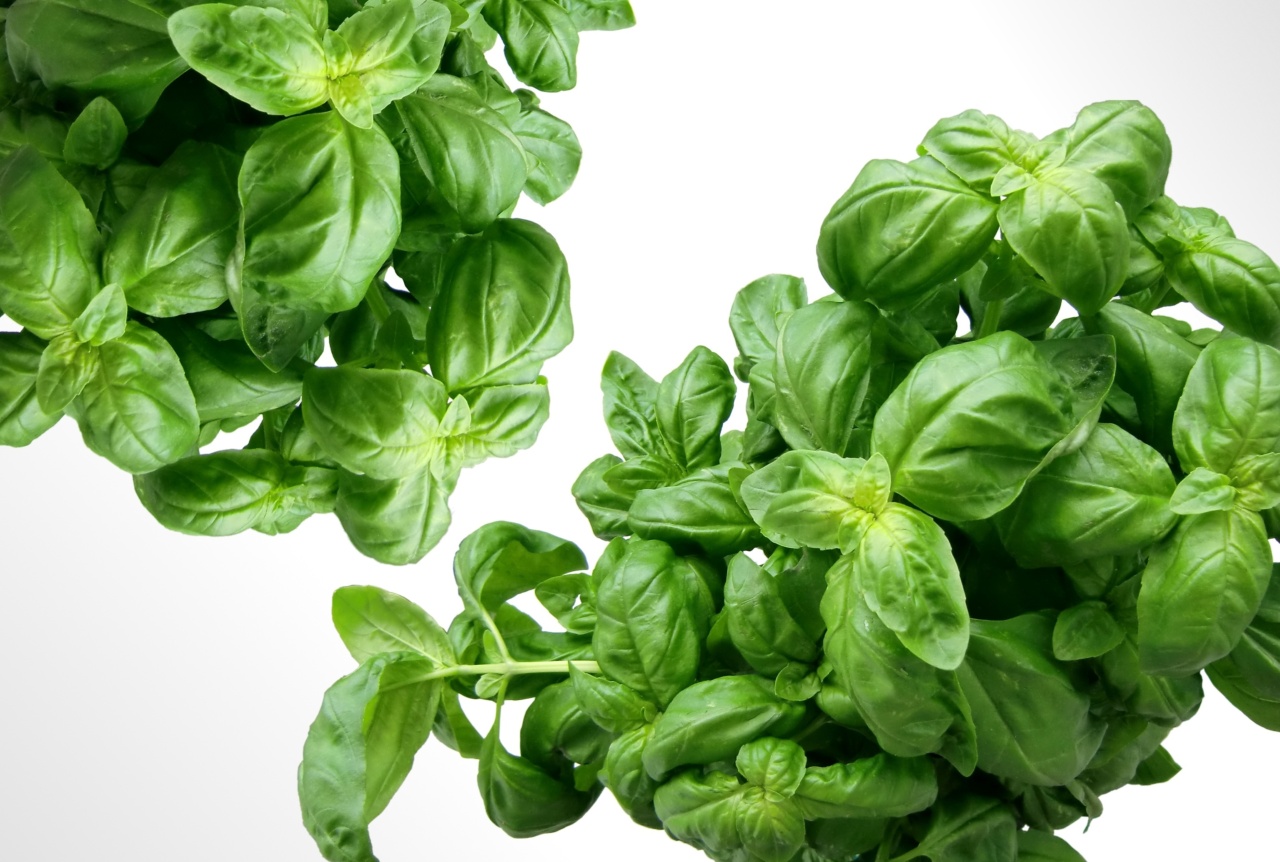When it comes to maintaining optimal kidney health, incorporating certain herbs into your diet can be incredibly beneficial. Two herbs that stand out in this regard are basil and sage.
Basil and sage have been used for centuries in traditional medicine due to their numerous health benefits. Not only do they add flavor to your dishes, but they also offer a wide range of therapeutic properties that support the proper functioning of your kidneys.
In this article, we will explore the powerful allies of basil and sage in promoting kidney health.
1. Basil: A Versatile Herb with Kidney-Protective Effects
Basil, also known as Ocimum basilicum, is an aromatic herb that belongs to the mint family. It is widely used in various cuisines around the world, such as Italian, Thai, and Mediterranean cuisines.
Apart from its culinary uses, basil is packed with essential nutrients and bioactive compounds that promote kidney health.
Basil contains antioxidants that help neutralize harmful free radicals in the body. Free radicals are unstable molecules that can cause oxidative stress, which may contribute to kidney damage.
By consuming basil regularly, you provide your body with an abundant supply of antioxidants that combat oxidative stress and protect your kidneys from potential harm.
Furthermore, studies have shown that basil possesses anti-inflammatory properties. Inflammation is a known risk factor for kidney disease, as chronic inflammation can damage renal tissues.
By incorporating basil into your diet, you can help reduce inflammation in your kidneys and lower the risk of kidney-related issues.
2. Sage: An Herb with Renal Protective Effects
Sage, scientifically known as Salvia officinalis, is a perennial herb that has been used for centuries for its medicinal properties. It is commonly used as a flavor enhancer in various dishes, particularly in Mediterranean cuisine.
Aside from its taste-enhancing capabilities, sage offers numerous benefits for kidney health.
Sage is known for its diuretic properties, which means it promotes urine production and helps flush out toxins from the body.
The ability of sage to increase urine output can be useful in preventing and managing certain kidney conditions, such as urinary tract infections and kidney stones. By increasing urine production, sage helps ensure the efficient elimination of waste products from the kidneys, reducing the burden on these vital organs.
Additionally, sage contains compounds that possess antioxidant and anti-inflammatory properties. These properties help protect the kidneys from oxidative stress and inflammation, both of which can contribute to kidney damage.
By incorporating sage into your diet or consuming sage tea, you can take advantage of its renal protective effects.
3. Basil and Sage Tea: A Soothing Remedy for Kidney Health
If you’re looking for a simple and effective way to harness the benefits of basil and sage for kidney health, consider brewing a cup of basil and sage tea.
By steeping these herbs in hot water, you can extract their beneficial compounds and create a soothing drink that promotes optimal kidney function.
To make basil and sage tea, follow these steps:.
- Boil a cup of water.
- Add a handful of fresh or dried basil leaves and sage leaves to the boiling water.
- Reduce the heat and let the herbs simmer for 5-10 minutes.
- Remove the pot from the heat and strain the tea into a cup.
- You can add lemon or honey for flavor, if desired.
- Enjoy the tea while it’s still warm.
By regularly consuming basil and sage tea, you can provide your kidneys with the necessary support for optimal functioning.
However, it’s important to consult with a healthcare professional before incorporating herbal remedies into your routine, especially if you have pre-existing kidney conditions or take medications.
4. Culinary Uses of Basil and Sage for Kidney Health
Aside from brewing tea, you can incorporate basil and sage into your culinary creations to elevate both the taste and the health benefits of your dishes. Here are a few ideas:.
4.1 Basil Pesto Sauce:
Basil pesto sauce is a versatile ingredient that can be used in pasta dishes, sandwiches, and as a dip. To make basil pesto sauce, blend fresh basil leaves, garlic, pine nuts, Parmesan cheese, and olive oil in a food processor until smooth.
The resulting sauce is not only delicious but also rich in antioxidants and anti-inflammatory compounds that benefit your kidneys.
4.2 Sage-Infused Olive Oil:
Infusing olive oil with sage is a simple way to incorporate its flavor and health benefits into your cooking. Simply heat olive oil in a saucepan and add a handful of fresh sage leaves.
Let the leaves infuse in the oil over low heat for about 10 minutes, then strain the oil to remove the leaves. This infused oil can be used in salad dressings, marinades, or drizzled over roasted vegetables to enhance their flavor while providing kidney-protective effects.
4.3 Basil and Sage Seasoning:
If you’re looking to add a burst of flavor to your dishes, consider making a homemade basil and sage seasoning blend. Combine dried basil leaves, dried sage leaves, salt, pepper, garlic powder, and onion powder in a jar.
Shake well to mix the ingredients thoroughly. This seasoning can be used in soups, stews, roasted meats, and grilled vegetables, enhancing the taste while offering beneficial kidney-supportive properties.
5. Precautions and Considerations
While basil and sage are generally safe for consumption, it’s essential to keep a few precautions in mind:.
– Allergies: Some individuals may be allergic to basil or sage. If you experience any allergic reactions, such as itching, swelling, or difficulty breathing, discontinue use and seek medical attention.
– Drug Interactions: Certain medications may interact with the compounds present in basil and sage.
If you take medications or have underlying health conditions, it’s best to consult with a healthcare professional before incorporating these herbs into your regimen.
– Pregnancy: Pregnant women should exercise caution when consuming basil and sage in large amounts, as these herbs may have uterine stimulant effects.
It is always advisable to consult with a healthcare professional before making any dietary changes during pregnancy.
By keeping these precautions in mind, you can safely reap the benefits of basil and sage for kidney health.
Conclusion
Basil and sage are not only wonderful additions to your culinary endeavors but also powerful allies for kidney health.
Both of these herbs possess antioxidant and anti-inflammatory properties that help protect your kidneys from damage and support their optimal functioning. Whether you choose to brew a cup of basil and sage tea or incorporate these herbs into your dishes, you can harness their incredible health benefits.
Remember to consult with a healthcare professional before making any significant changes to your diet, especially if you have pre-existing kidney conditions or take medications. Embrace the power of basil and sage for kidney health and take proactive steps towards maintaining the well-being of your kidneys.































